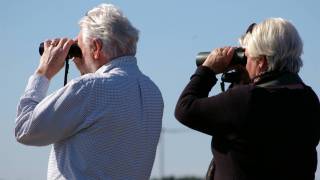Shingles Vaccination Reduced Stroke Risk By 16%

A new study conducted by the Centers for Disease Control and Prevention (CDC) indicates that the shingles vaccine could reduce an individual's risk of stroke.
The results of this study announced on February 12, 2020, suggest that vaccination with the Zoster Vaccine Live reduced stroke risk by 16 percent in seniors.
This shingles prevention vaccine was initially approved in the USA during 2006 and is known as Zostavax.
To help determine if the shingles vaccine reduces the risk of stroke, Quanhe Yang, Ph.D., lead study author and senior scientist at the CDC and colleagues reviewed the Medicare health records of more than 1 million Medicare fee-for-service beneficiaries age 66 or older who had no history of stroke and who were vaccinated with the Zoster Vaccine Live between 2008 and 2014.
That group was matched with the same number of Medicare fee-for-service beneficiaries who did not receive the shingles vaccine with the same four-year follow-up.
These researchers found:
- Receiving the shingles vaccine lowered the risk of stroke by about 16%,
- Lowered the risk of ischemic (clot-caused) stroke by about 18%, and
- Lowered the risk of hemorrhagic (bleeding) stroke by about 12%;
Furthermore, Zostavax’s protection was strongest among people ages 66 to 79 years.
“The reason for increased risk of stroke after a shingles infection may be due to inflammation caused by the virus,” according to Dr. Yang.
“Our study results may encourage people ages 50 and older to follow the recommendation and get vaccinated against shingles.”
“You are reducing the risk of shingles, and at the same time you may be reducing your risk of stroke.”
The newest shingles vaccine known as Shingrix, Adjuvanted, Non-Live Recombinant Shingles Vaccine (available since 2017), confers even greater protection and is now the preferred vaccine recommended by the CDC’s Advisory Committee on Immunization Practices.
According to the CDC, 2-doses of Shingrix is more than 90 percent effective at preventing shingles and is recommended for adults age 50 and older.
More than 99 percent of people aged 40 or older in the USA carry the dormant chickenpox virus, also known as the varicella-zoster virus, says the CDC.
Shingles is a reactivation of the chickenpox virus and typically occurs after age 50.
The risk of developing shingles, a painful condition that causes skin blisters and can have serious complications, increases with age and other health conditions.
Future studies are needed to confirm the link between Zoster Vaccine Live and stroke and to determine any association between Adjuvanted, Non-Live Recombinant Shingles Vaccine, and the risk for stroke.
This study’s findings will be presented at the American Stroke Association’s International Stroke Conference, Poster Presentation TP493. Co-authors are Anping Chang, M.S.; Xin Tong, M.P.H.; and Robert Merritt, M.A. Author disclosures are available in the abstract.
Statements and conclusions of study authors that are presented at American Stroke Association scientific meetings are solely those of the study authors and do not necessarily reflect association policy or position.
The CDC funded this study.
Shingles vaccine news published by Precision Vaccinations.
Our Trust Standards: Medical Advisory Committee

























